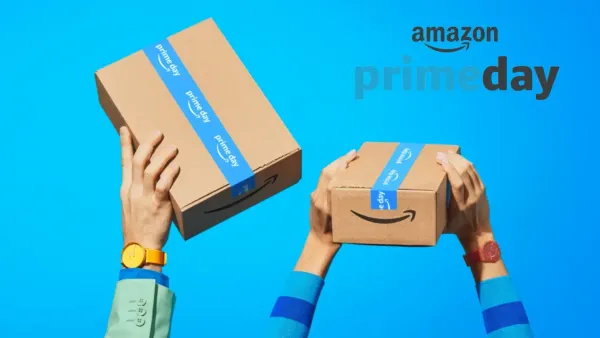Google illegally monopolised search, but don't expect change any time soon
Google's Search may have been the best offering, but the company went out of its way to squash competition.

For most people, Google is the Internet. It's a verb that's used to describe searching for information online.
The problem is that Google used its massive marketshare and spent billions of dollars to keep its position as the Internet's default search engine. And according to ruling from a Federal US judge overnight, that's a violation of Antitrust law.
I'm not going to lie – this news is music to my ears. Google's position as the world's default search engine, with over 90% market share (according to SimilarWeb) has meant it has gone unchecked in its approach to rollout algorithmic updates that crush independent publishers like myself, while objectively worsening results.
But it's not the quality of search results that got Google into trouble. In fact, the 277 page ruling from US District Judge Amit Mehta recognises Google's search quality dominance in its introduction.
What got Google into trouble here is its deals to make Google the default search engine across different mobile devices and web browsers, often at the exclusion of competitors.
Over the course of the trial, it was revealed that in 2021 the company paid out $21 billion to companies like Apple and Samsung to have Google pre-installed as the default search engine on their browsers and mobile devices. In that time, the Search giant made $146 billion in advertising revenue from Search.
It's nearest competitor, Microsoft, made less than $12 billion in that same timeframe.
After having carefully considered and weighed the witness testimony and evidence, the court reaches the following conclusion: Google is a monopolist, and it has acted as one to maintain its monopoly. It has violated Section 2 of the Sherman Act.
– United States v Google
What's interesting here isn't the money involved, it's the actions Google took to ensure its revenues continued to grow. In particular, the distribution agreements were regarded as "exclusive with anticompetitive effects", and that Google hadn’t offered any "procompetitive" justifications for those agreements to exist.
So what happens now?
Google is going to appeal, so this is still a long way from having any meaningful change in how things work.
Here’s our statement on today’s decision in the DOJ case:
— Google Communications (@Google_Comms) August 5, 2024
“This decision recognizes that Google offers the best search engine, but concludes that we shouldn’t be allowed to make it easily available. We appreciate the Court’s finding that Google is ‘the industry’s highest quality…
“This decision recognizes that Google offers the best search engine, but concludes that we shouldn’t be allowed to make it easily available. We appreciate the Court’s finding that Google is ‘the industry’s highest quality search engine, which has earned Google the trust of hundreds of millions of daily users,’ that Google ‘has long been the best search engine, particularly on mobile devices,’ ‘has continued to innovate in search’ and that ‘Apple and Mozilla occasionally assess Google’s search quality relative to its rivals and find Google’s to be superior.’ Given this, and that people are increasingly looking for information in more and more ways, we plan to appeal. As this process continues, we will remain focused on making products that people find helpful and easy to use.” – Kent Walker, President, Global Affairs
Given the case against Google was brought about back in October 2020 and is only just being ruled on now, it could be a while before we see what happens next.
Once the appeals process is done, and if the decision is upheld, then the court will determine "remedies". This is where things will get really interesting.
The remedies stage is all about fixing the situation to foster more competition. So that could mean breaking up Google's business in a way that it doesn't have the same influence over the same search experience.
At a minimum, it could rule that Google cannot pay to be the exclusive or even default search engine on iPhones or web browsers.
We'll have to wait and see what that all looks like, though.
Who will actually benefit here?
Once those decisions are made, it will be worth seeing who actually benefits from the ruling. Because as the ruling document outlines, current online search is basically a two horse race right now. Google and Microsoft.
Even the other search engines, like DuckDuckGo or Yahoo, use Bing's search engine to deliver results.
By removing Google as default, what is the way forward? Will we see an extra step introduced whenever we set up a new iPhone, where we have to set a search engine before we use Safari?
Or will Bing end up activated by default just to try and break down Google's dominance?
One of the challenges with this whole situation is that for the most part, Google Search has (historically) been a better product. I feel like that has changed dramatically in recent years, though I concede my own experience with algorithmic penalties has definitely impacted my viewpoint.
I have been using DuckDuckGo for a few months now, and while it mostly delivers what I want, things like image search or shopping results still have a long way to go.
I don't regret making the switch away from Google. But I definitely miss Google from about five years ago, where I felt the results were an accurate reflection of the highest quality content on the Internet.
For most people though, I can't see this making any meaningful difference to how they perceive search on the web.
BTTR relies on support from readers like you to keep going. If you'd like to support our work, consider a one-time donation. Every little bit helps us to cover costs and stay independent. 100% of donations go directly to authors. Thanks for your support!




